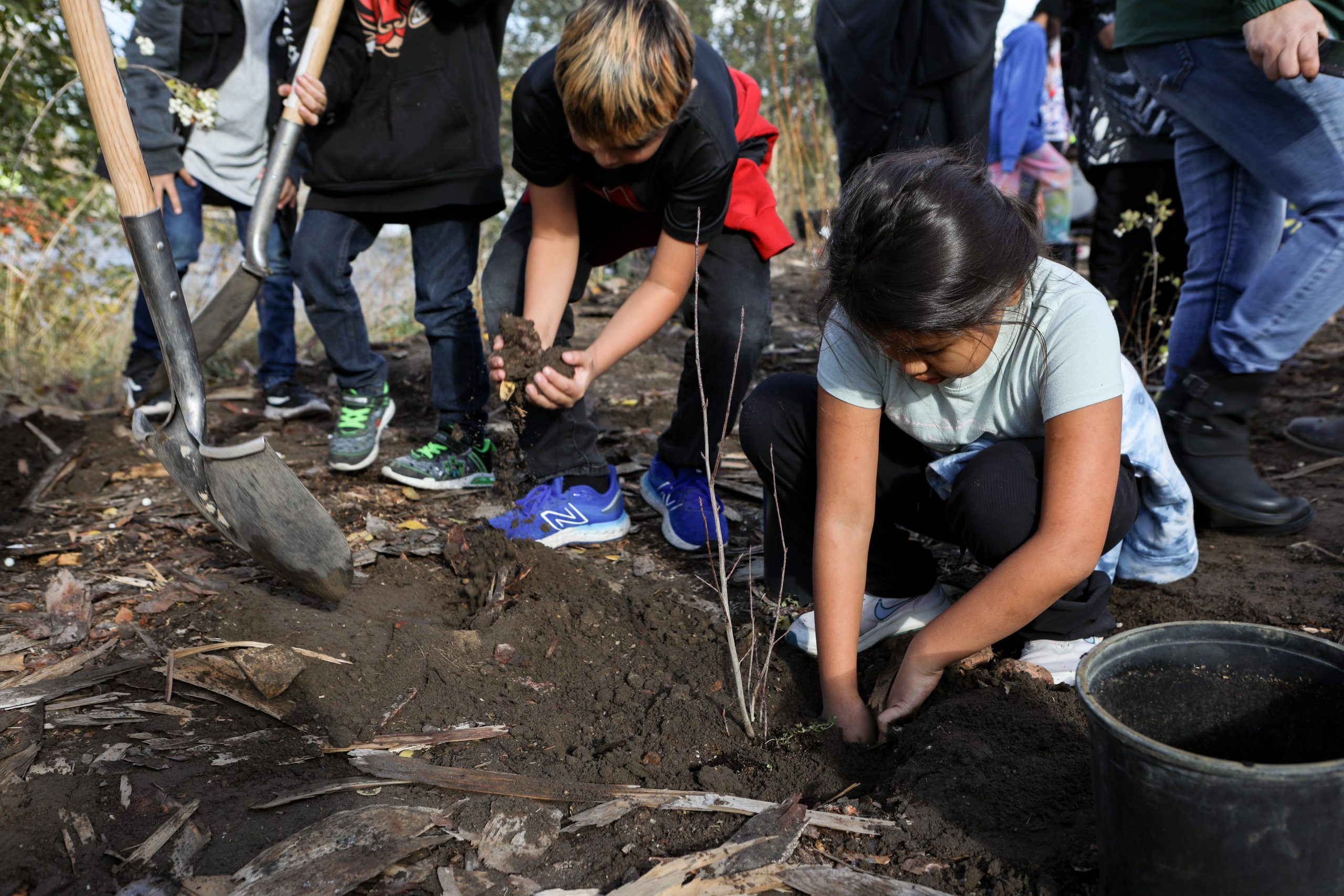Taran Kootenhayoo’s ‘White Noise’ made me sob
The late playwright’s newest comedy is an apt representation of the Indigenous experience
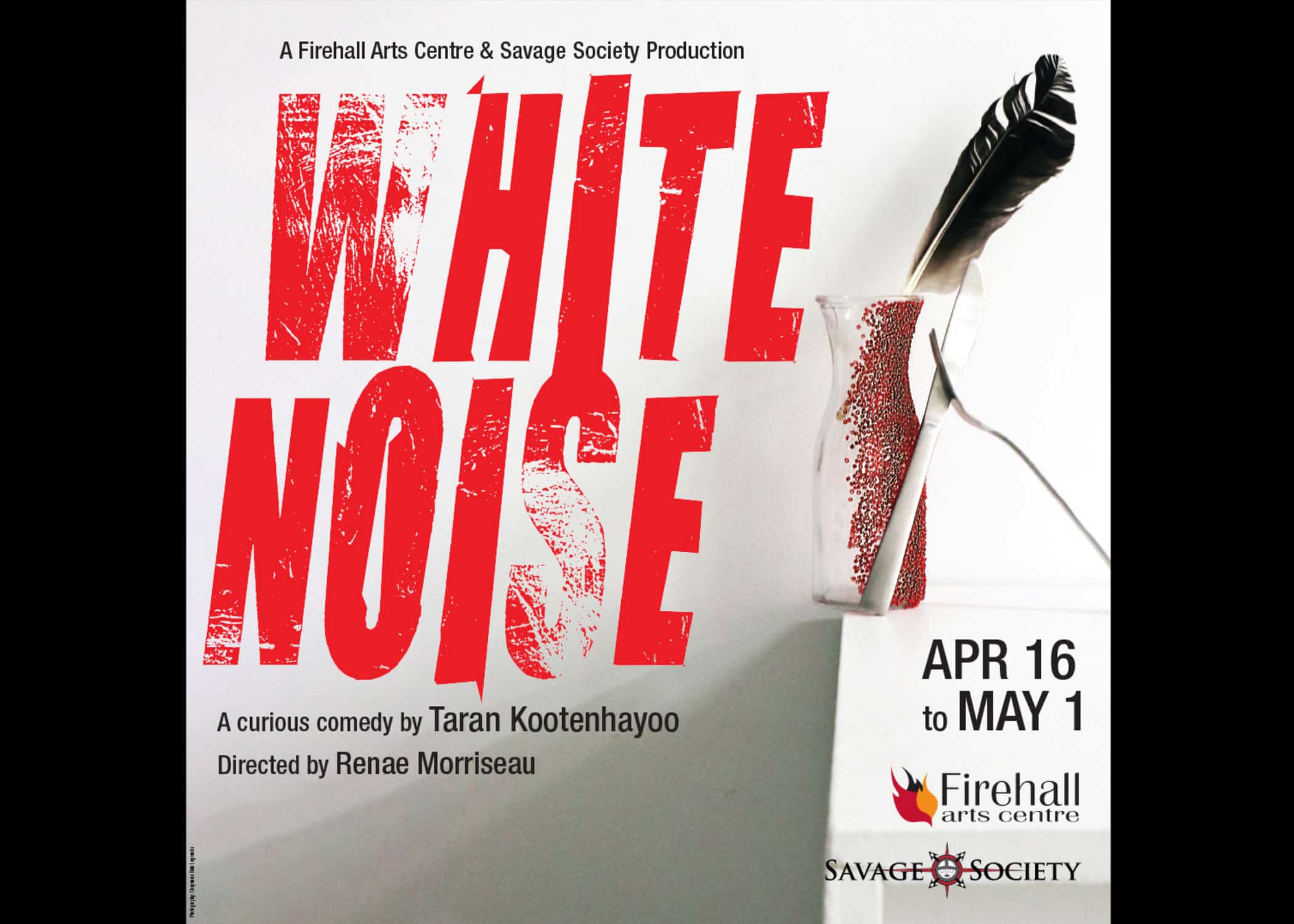
Content Note: This story contains reflections on the feelings of invisibility caused by displacement and references to longing for homelands. Please read with care. White Noise
When I was 12, I saw the movie Awakenings, starring Robin Williams and Robert Deniro. It was about a man who wakes up from a years-long coma, starts enjoying his life again, reconnecting with loved ones and experiencing the joy of being alive, only to slowly descend back into a coma. He tastes the sweet joy of life and then it’s stolen from him again.
I found the movie incredibly distressing and cried when it ended, and I couldn’t stop. I could feel the other moviegoers shuffling past me in the aisles, but my head was on my arms on the back of the chair in front of me while my body was wracked with sobs. The emotion was so intense that I didn’t care about how I looked or sounded. I kept sobbing, for 20 minutes, long past the time the theatre employees were cleaning, uncomfortably, around me.
I had a similar experience earlier this week at the Firehall Arts Centre, where I saw the late Taran Kootenhayoo’s play White Noise.
On the surface, White Noise is a story of two neighbouring families who have supper together. The subtext is much deeper. When they come together, we feel the roiling unease of the two families, as colonial violence, cultural misunderstanding and covert and overt racism surface and finally explode. Somehow, alongside the emotional intensity of this, White Noise is also a rollicking, laugh-out-loud comedy. In other words, it is an apt representation of the Indigenous experience.
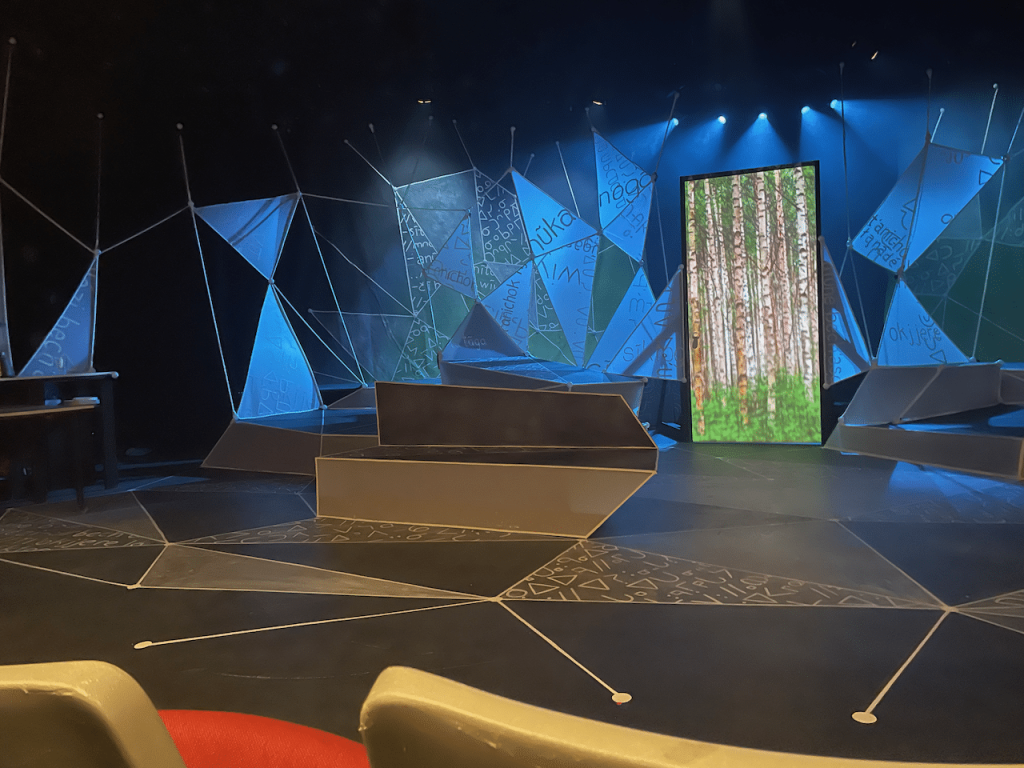
One of the families in the story is from a Rez in Alberta. When their son develops an app and becomes a multi-millionaire, they move to the tony Vancouver neighbourhood of West Point Grey (The hilariously-named Eagle Shitting App, where you can make an eagle poop on Justin Trudeau.) The family that lives next door to them in their new neighbourhood includes well-heeled life coaches and social influencers. When the two groups sit down for a meal together, the dynamics are funny at first, but they grow increasingly hostile as the dinner party wears on.
I first cried during a surreal, non-sequitous scene.
“And now we shall dance,” a deep voice intoned as an uptempo EDM song blasted through the theatre. All the actors, whose characters had not yet met in the play, began dancing. Something about the joy of it got to me. Seeing these two families together, celebrating, brought tears. Were they celebrating each other? Or were they celebrating in spite of each other? In that moment, watching them experience exuberant joy, I yearned for a kinship with my white neighbours, too — a momentary forgetting of all that has passed between our two groups, of the pain and betrayal that has marked our relationship for four-hundred years. It’s a connection that is difficult for me to find with non-Indigenous people, and I felt the sadness of that lack.
Actor Columpa Bobb channels Kootenhayoo
Columpa Bobb plays Tse’kwi, the Matriarch of the Indigenous family that has just moved to Vancouver. Her character is powerful, and White Noise is the perfect vehicle for her wisdom. In Tse’kwi, we hear Kootenhayoo’s true feelings, about life as an Indigenous person, about colonialism and about white ignorance. Tse’kwi is the one who will not take any shit, who speaks her truth in the face of the racism displayed by her new neighbours. She delivers the best lines of the play, while her co-stars offer up sardonic and light-hearted banter that keep the play moving at an easy clip.
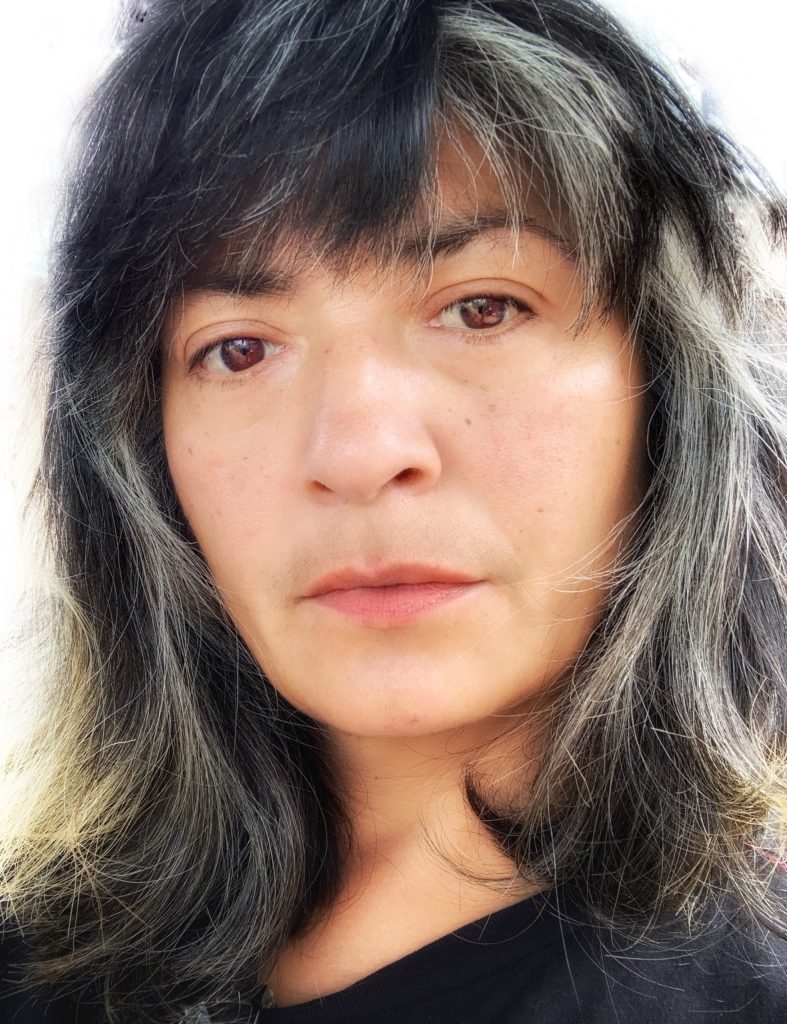
I had the honour of interviewing Columpa Bobb this week. A veteran actor who has reserved many awards and nominations, Bobb is a mainstay of theatre in Vancouver, Toronto and other cities in Canada. I’ve been watching her perform since I was a teenager. I asked her about this incredible role and the beautiful young man behind it. She praised Kootenhayoo.
“He was an amazing young man,” she says.
“To have a young man return us to a place where our matriarchs are not only valued but seen as amazing… like, I’ve never seen that happen onstage in a play from a young man.”
When the play ended, as the actors took their bow, I sobbed. Others stood up to emphasize their support, but I couldn’t. I cried behind my mask, grateful for the applause that hid the sound of it, hoping the lights stayed dim. Unlike when I was 12, I didn’t feel comfortable continuing to cry. I couldn’t just let myself release whatever it was within me that wanted out. Instead, I was embarrassed by the emotion that had overcome me. In the ensuing years since being in that theatre on Granville Street, crying over characters with whom I had almost nothing in common, a lot had happened.
White ignorance is violence
It’s hard being Indigenous in Canada. It’s hard being Indigenous in California and France too. It’s hard feeling like a museum exhibit, an outlier, an anomaly. It’s painful to watch family members wither and die, end up in jail or become unable to care for their kids because their trauma has pushed them into substance use. It’s hard to watch Canada demonize those same people they spent hundreds of years harming, instead of helping. I’ve seen a lot since I was 12. I’ve lost a lot. And so, here I am at 47, unable to even hold space for my own grief.
I dried my tears and shuffled outside with my head down. I looked around for the gaggle of kokums I had come to the play with. When I spotted them and walked over, I learned, with relief, that all of my nehiyaw kin were crying too. I wasn’t alone — they felt what I felt. There we were, the whole lot of us standing on the sidewalk, tears streaming down our faces.
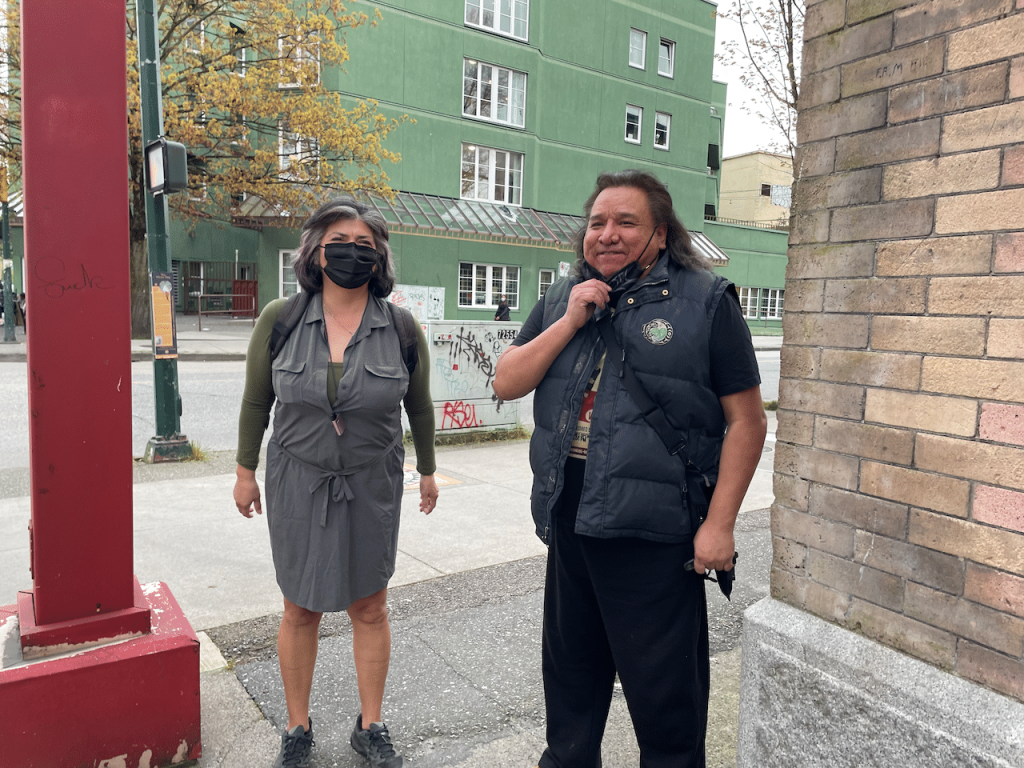
One of my friends had been triggered by a scene where the police were mentioned. She is currently dealing with the traumatic aftereffects of police violence against a young family member. We encircled her as she cried.
I’m so grateful to be nehiyaw (Cree). I feel lucky, and I feel blessed to have the connection with the spirit world, and with my own spirit, that my culture gives me. I genuinely feel pity for the privileged classes who are cut off from their own cultures and have settled for capitalism as something to believe in. And yet, the daily grind of existing as an Indigenous person in Canada is exhausting. Even the most well-meaning friends and allies say and do things that feel like colonial violence to me on a regular basis.
I feel invisible here, on my own land.
When I shared this feeling to Columpa she said, “And erased. Yeah, that’s the colonial burden of Canadians who are non-Indigenous, is to parent our voices or erase us completely. And that’s their inherited colonial baggage. And when we say ‘decolonize,’ that’s what we’re talking about. Or at least that’s what I’m talking about.”
Seeing yourself represented onstage can be validating, but it can also be triggering. For me, it was both. I guess you could say validation is what was triggering. I’m not used to feeling it, and so its presence made me aware of how much I’ve missed that in my life, of how often I’ve felt misunderstood, demeaned and disrespected by a population that lives on stolen Indigenous land but knows nothing about us.
Kootenhayoo’s legacy
As Indigenous people call upon their intergenerational strength, both collectively and as individuals, we will continue to see more powerful writing from the youth growing up around us. We are lucky to have such voices in our midst. This playwright, Taran Kootenhayoo, tragically died in late 2020 and is not here to see his very first play being staged. The fact that he left us with this beautiful offering provides some comfort. We are lucky that he graced this earth long enough to share with us the beauty that so clearly lived inside him.
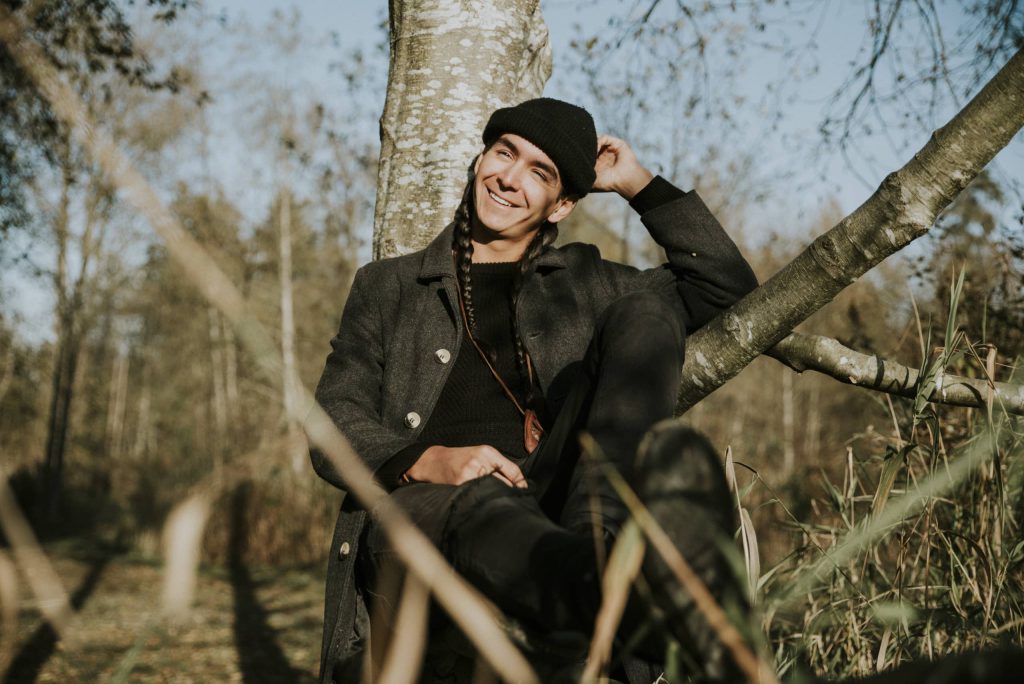
“It’s just an absolute honour to be part of carrying out Taran’s legacy,” says Bobb, “for personal reasons, obviously, but also professional ones. That our young men, [are] letting the world know that they’re warrioring up. You know? By producing something for the general public. Of course our young men are like that, in person. But to have that out there in the world at large is huge.”
“So it’s just an honour to be a part of that. I just feel as so many do. But you know what? We come to this earth from stories of love, and when we die, we go back into the land of story, and we are sent with love and I just hope that Taran’s family is proud of the footprint he left here.”
May others take up this mantle and bring light to the issues that matter to Indigenous people.
And may you get yourself down to the Firehall Arts Centre ASAP, as this play is only running until May 1st.
Firehall Arts Centre and Savage Society Team up to Present the World Premiere of White Noise
Written by Taran Kootenhayoo & Directed by Renae Morriseau
Runs until May 1st, 2022 at the Firehall Arts Centre, 280 E. Cordova in Vancouver, BC.
Performance Times: Tuesday-Saturday, 7:30pm | Saturday & Sunday, 3:00pm Tickets: From $15 at firehallartscentre.ca | 604.689.0926
Author
Latest Stories
-
‘Bring her home’: How Buffalo Woman was identified as Ashlee Shingoose
The Anishininew mother as been missing since 2022 — now, her family is one step closer to bringing her home as the Province of Manitoba vows to search for her
-
Amid climate impacts, leading Secwépemc firekeeper shares ‘a better way of looking after the land’
In a time of worsening wildfires, Joe Gilchrist says cultural burning ‘needs to be multiplied hundreds of times’ — returning to Indigenous stewardship




